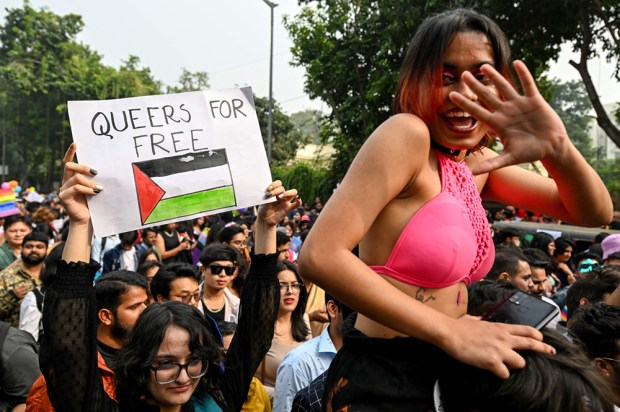A reader has asked me about the common expression ‘virtue-signalling’. The meaning, I think, is fairly clear. It is a message, or a public posture, adopted by a person or a company intended to send the message: ‘Look at me! Aren’t I good?’ It’s a very recent invention. ‘Virtue-signalling’ was coined by British author and journalist James Bartholomew (writing in The Speccie in 2015!) He said he intended it to mean that the holder wants to be welcomed for having displayed the approved, virtuous views. He goes on to say that the ‘virtue-signaller’ doesn’t have to actually do anything. All they have to do is to say they will vote Yes in the Voice referendum, or put the words ‘always was, always will be Aboriginal land’ into their email signature. But they don’t actually do anything! You’d think that someone saying ‘aways was, always will be…’ would immediately hand over title to their home and land to the nearest Native Land Title Council. But they never do! Because ‘virtue-signalling’ is always an empty gesture. This compound noun often seems to involve a kind of ‘groupthink’– it’s a way of signalling what slice of society the ‘virtue-signaller’ belongs to (or wishes to belong to). It seems to me (and forgive me if I sound like a cynical old journalist here) as if ‘virtue-signalling’ is often done to identify the person sending the signal as standing with the inner-city, bicycle-riding, latte-drinking, vegan-eating, organic clothes-wearing, save-the-planet mob. Ever since James Bartholomew coined ‘virtue-signalling’ the emptiness of such gestures has been apparent – but no one is prepared to tell those trendy people who keep doing it! Someone needs to say that this particular emperor has no clothes!
Is ‘virality’ really a word? I ask the question because of a recent newspaper report about the song ‘Rich Men North of Richmond’ by Oliver Anthony. The song rocketed to the top of the Billboard chart – the first artist to come in on top of the Hot 100 with no prior chart history. The key sentence (that set my word antenna quivering) was this: ‘its steep ascent to the top illustrates the power of virality’. Does it, indeed? Well, it might if we thought that ‘virality’ was part of the English language. For some years ‘viral’ has meant ‘infectious popularity on social media.’ The word ‘viral’ was originally used (when it was born in 1948) to mean the progress of infectious diseases. Now this adjective seems to have bred a new (and especially ugly) noun ‘virality’. It’s not yet in the big dictionaries (the Oxford and Websters) but our own Macquarie is often quicker off the mark than some others, and already has it listed with this definition: ‘the characteristic of an internet product [such] as a YouTube clip… that is disseminated rapidly and widely’. Do we need it? Probably not.
Got something to add? Join the discussion and comment below.
Get 10 issues for just $10
Subscribe to The Spectator Australia today for the next 10 magazine issues, plus full online access, for just $10.
Contact Kel at Ozwords.com.au
You might disagree with half of it, but you’ll enjoy reading all of it. Try your first month for free, then just $2 a week for the remainder of your first year.














Comments
Don't miss out
Join the conversation with other Spectator Australia readers. Subscribe to leave a comment.
SUBSCRIBEAlready a subscriber? Log in